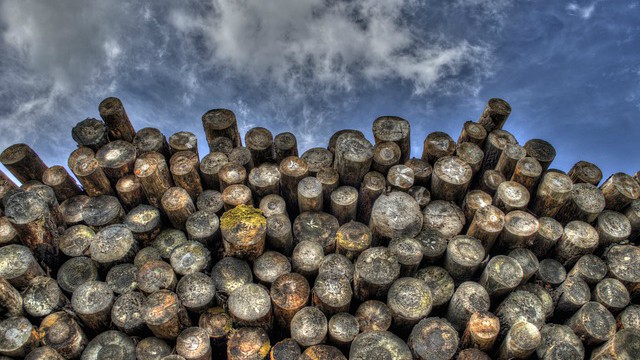Last week, the U.S. Commerce Department announced what the final duties would be on softwood lumber imported from Canadian producers. Although the rates decreased from the high preliminary rates that were announced earlier this year, the duties still remain high.
Canfor Corporation (TSX:CFP) saw its rate drop from 27.98% to 22.13%, while West Fraser Timber Co. Ltd. (TSX:WFT) remained saddled with the highest duty of 23.70%, which is down from 30.88%. Aside from a few companies, Canadian softwood lumber producers did see the final duties come in lower than the preliminary ones. The U.S. International Trade Commission ultimately will have to approve these duties, and a decision is expected mid-December.
So far, we have not seen the duties adversely impact either Canfor or West Fraser’s share prices. Last week, Canfor’s share price actually rose 2%, while year to date it is up an astounding 69%. West Fraser was also up 1% last week, and year-to-date returns are slightly behind Canfor, with its share price rising 64%.
Will this impact demand for Canadian lumber?
With multiple hurricanes devastating many parts of the U.S. this year, there is a lot to rebuild, and it’s why investing in softwood lumber companies might be a good idea. The chairman of the National Association of Home Builders in the United States, Granger MacDonald, was against the tariffs and said, “This tariff only adds to the burden by harming housing affordability and artificially boosting the price of lumber.”
The U.S. government has, from the start, been focused on protecting its local workers from evil, foreign companies that are stealing work and jobs, and so it may not be much of a surprise that softwood lumber has fallen victim to this mentality as well.
The problem for the U.S. is that there is not enough supply south of the border to meet all the needs for rebuilding hurricane-damaged homes, and even under normal circumstances, about one-third of the lumber used in the U.S. comes from Canada, and that number might be even higher this year with demand likely to be up from previous years.
What does this mean for investors?
Investors can expect to see duties impact net income for softwood lumber producers, and we have seen that happen already. However, given that these duties are outside the control of companies like Canfor and West Fraser, we haven’t seen investors sell off the stocks. The rising demand for softwood lumber could more than offset the impact that duties will have on financials.
Investors are also aware that in a little over three years, we could see a more free-trade-friendly government in the U.S., and these obstacles could be a thing of the past.
Should you buy Canfor or West Fraser today?
Given how well the stocks have been doing this year, it might be hard to justify buying at a time when share prices are near 52-week highs. However, right now we aren’t seeing the stocks slow down, and as sales continue to grow, the share price might just continue to ascend.
Canfor and West Fraser are great long-term investment options, as long as demand for lumber stays strong, and there’s no reason to expect that to change anytime soon.









